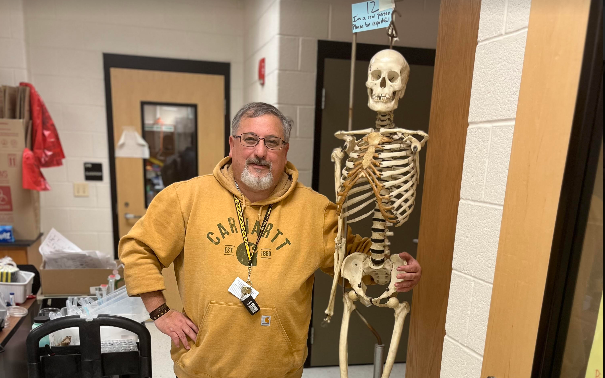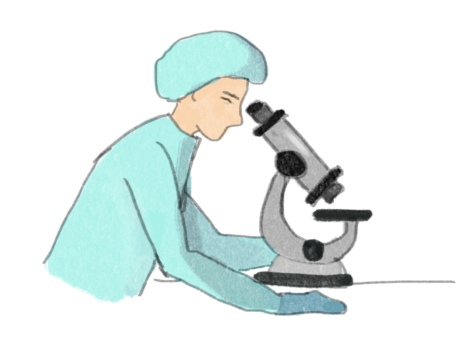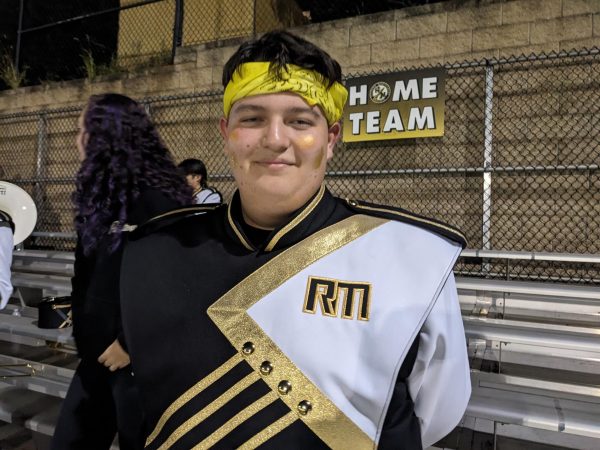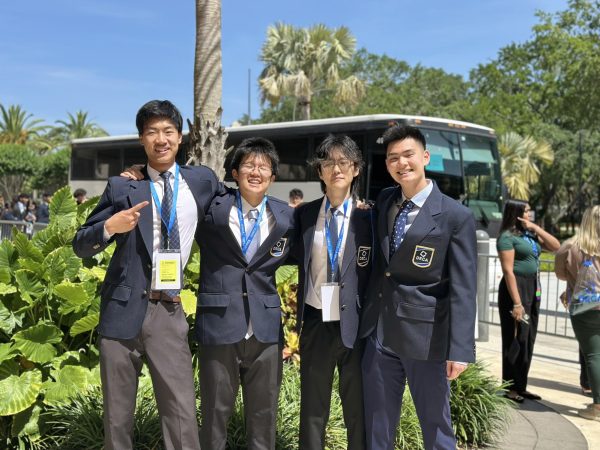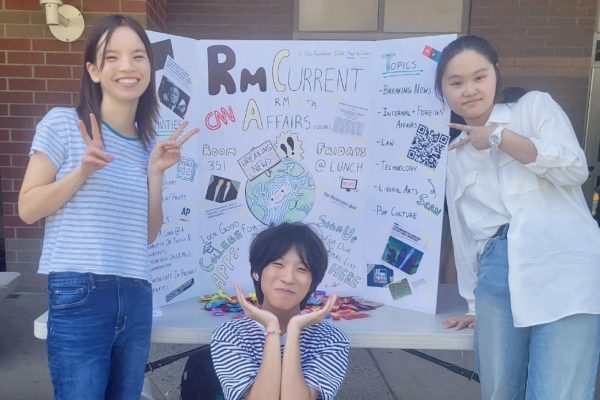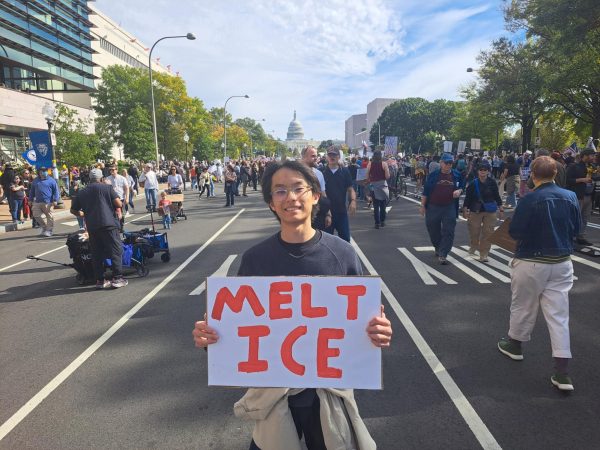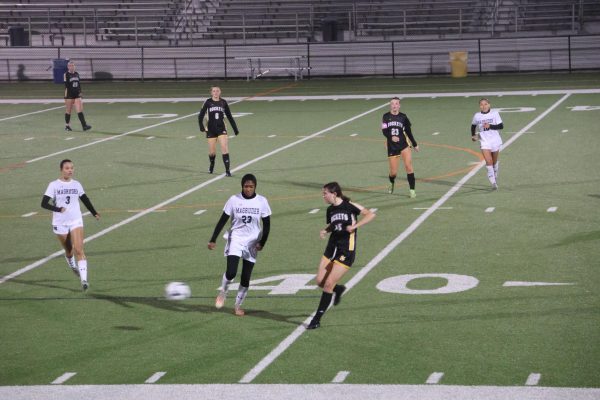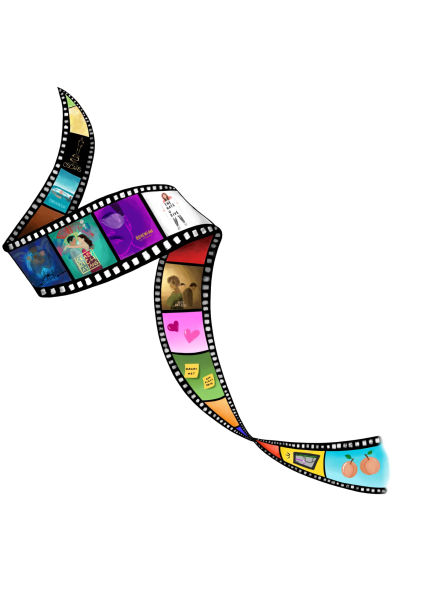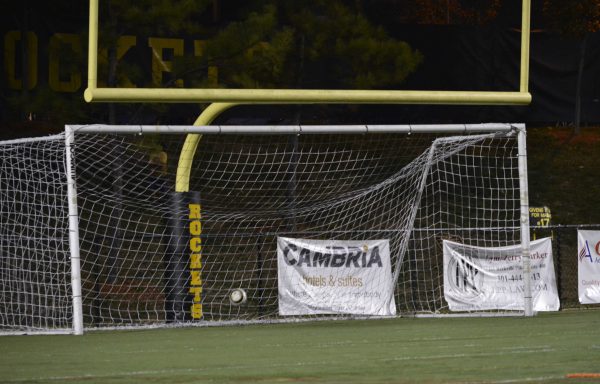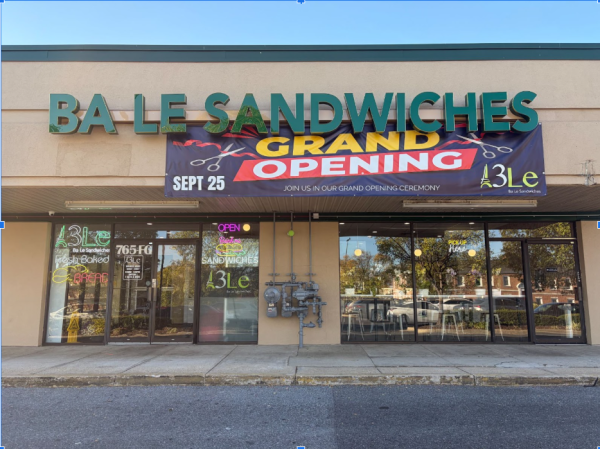Exploring backstories of Dr’s at RM
Dr. Kovacs poses beside a real skeleton.
Following high school graduation, many students have plans to go to university to earn a degree. A PhD is the highest level degree one can achieve and requires scholars to research and write about topics that relate to their field of study.
At RM, many teachers have earned this degree along with other work experience.
RM’s Media Specialist, Dr. Michelle Alexander originally wanted to be a veterinarian. She earned her first bachelors degree at Tuskegee University in animal science. While she was in vet school, she realized it wasn’t her passion. She then transferred to Howard University where she received her bachelor’s degree in broadcast journalism.
Following this, she worked as a journalist for organizations such as CNN and WJLATV. She performed public relations for Rev. Dr. Joseph Lowery for the SCLC, the civil rights organization founded by Dr. Martin Luther King Jr. While working, she became interested in law because exciting stories would go to the legal and investigative reporting departments.
Eventually, she started substitute teaching and received her masters degree in education from University of Maryland College Park. She taught science and later became a media specialist.
Attending law school was on her bucket list, so she decided to pursue family law and has been practicing full time for 18 years.
Currently, in addition to her small law practice, Dr. Alexander works in the media center. She aids students in finding sources for school papers and books to read. “Students should be able to see themselves in a book that’s in this library,” Dr. Alexander said.
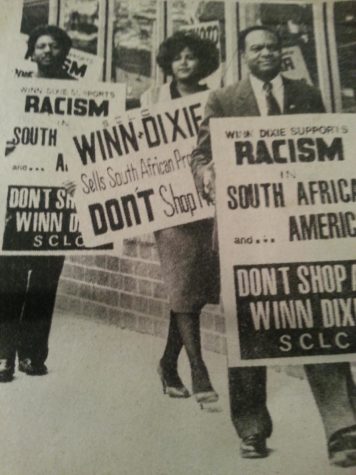
Another teacher with a PhD is Dr. Douglas McDonald, who teaches economics, precalculus and macroeconomics.
Dr. McDonald became interested in economics as a teenager when there was concern about global sustainability and energy supplies. “It provided a key way of understanding a lot of issues that were important to me at the time,” Dr. McDonald said.
This led him to start working towards his bachelor’s degree in economics at the College of Worcester. After a couple years of working as an economist, he decided to get his masters and PhD in economics at John Hopkins.
He felt that in order to do the work he aspired to pursue, it was necessary to obtain these higher degrees in order to develop the skills he needed. “I was highly motivated and very thirsty for knowledge,” Dr. McDonald said.
While in his PhD program, he felt it was an exciting time to study economics due to new financial tools. He enjoyed learning alongside other scholars who had similar interests. His PhD dissertation, about finance and energy related fields, aided him in his work as an economist for 25 years.
He always knew he wanted to share his knowledge with people around the same age as he was when he became interested in economics. Thus, he decided to get his teaching certification to gain the skills to pass knowledge to students. “Content knowledge is important for teaching, but you need a lot more to be an effective teacher. You have to know how to communicate that knowledge to students,” Dr. McDonald said.
Dr. McDonald enjoys interacting with students and helping them learn. “It’s pretty cool to interact with students and learn from them,” Dr. McDonald said.
Another teacher who has a PhD is Dr. Peter Perry, who teaches instrumental music and is RM’s band director.
Dr. Perry’s aspiration to become a band director started when he was in seventh grade at an overnight band camp. He admired the teachers who helped him improve his trumpet skills. “I was inspired by both the results they got out of me, but also to watch somebody devote themselves to somebody else’s improvement,” Dr. Perry said.
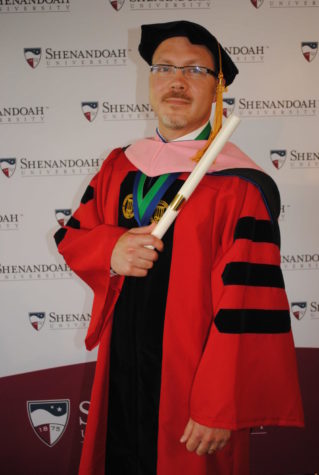
Because he had known what he wanted to do for so long, he worked hard in high school to perfect his music skills and received a full scholarship to the University of Maryland, earning his bachelors in music education.
While attending UMD, he played in the UMD band and was the instrument manager. Additionally, he took conducting classes which helps him now in his daily life.
Later, he worked towards his masters degree in music education with a concentration in conducting- teaching during the day and taking classes at night. He decided to get his doctorate in musical arts, focusing on music education at Shenandoah University because he could complete his coursework during the summer or off campus. This allowed him to continue his job at RM.
He recognizes that having a doctorate degree helped him find new opportunities, including being able to teach at the Catholic University of America and write a book published by Oxford University Press.
Having a PhD was a life goal of Dr. Perry both because his father had one in astro physics and because it gave him the opportunity to expand his knowledge in a subject he was passionate about. “As impressive as the title is for a lot of people, for me it’s the idea that you go in and fully commit yourself to having a deeper understanding of your craft…and being given the tools to learn more.” Dr. Perry said.
Furthermore, forensics and biology teacher Dr. Karl Kovacs has a Phd in Biochemistry from the University of South Florida.
He obtained his bachelors in chemistry from Gannon University, originally planning to become a doctor. As he studied in college, he realized he was interested in the laboratory aspect of science. “I had a passion for research and gaining new information using inquiry and experimentation,” Dr. Kovacs said.
This led him to start working towards his masters and research doctorate degrees which allowed him to work in a laboratory, researching human expressed genes. Dr. Kovacs worked for different biotech companies, including NIH and later moved to a company called OriGene. He worked at OriGene for 17 years and helped find full length copies of genes that can discover genes with proteins linked to diseases and cancer. This can help pharmaceutical companies find treatments to monitor the progression of diseases.
Additionally, he was involved in finding the largest collection of full length human genes in the world. “To be able to look back on that and say I was part of that and the discovery makes me smile,” Dr. Kovacs said.
As time went on, he began working in a managerial role and became less involved in direct laboratory research. He began missing his previous involvement in science, which led to him to consider switching careers to education. “I enjoyed [teaching] and they enjoyed what I did. I was able to relate the science of what we were doing to virtually anyone,” Dr. Kovacs said.
Additionally, his wife, who was a teacher and later worked in teacher development, inspired him to change careers.“I decided to pick up the touch that she had left, to talk to students and share the excitement of what I have done over the last 25 years,” Dr. Kovacs said.
For many teachers with PhDs, obtaining a high level degree allows them to further develop their interest and knowledge, but teaching allows them to inspire and pass down their knowledge to others. “I still find the values that I searched for at the beginning [through teaching], which is to talk to students, share stories about science, learn more about science, and be at the forefront of creativity,” Dr. Kovacs said.
Your donation will support the student journalists of The Tide, Richard Montgomery High School's student newspaper. Your contribution will allow us to purchase equipment and cover our annual website hosting costs.
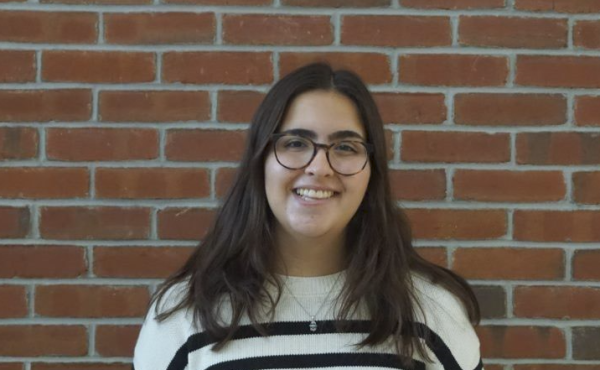
Mayah Nachman is excited to begin her senior year as a News Editor for The Tide. This is her fourth year writing for the paper, having previously...


